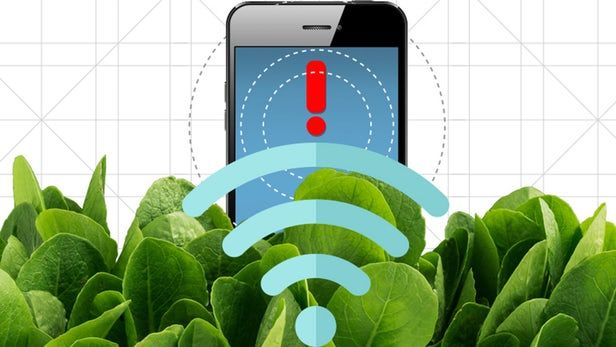The strength of spinach isn’t only in its nutrients, but also in its ability to be hacked to function as a sensor, according to researchers at the Massachusetts Institute of Technology. An MIT team used wonder-material carbon nanotubes to give the greens the ability to detect explosives and wirelessly transmit information to a mobile device.
MIT engineers applied a solution of nanoparticles to the underside of the leaves, allowing them to be taken up into the mesophyll layer where photosynthesis takes place. The embedded nanotubes then acted as sensors able to detect nitroaromatic compounds – which are often used in explosives like land mines – in the groundwater taken up by the plants’ roots.
If the chemicals are present in the water the plant is feeding from, the carbon nanotubes in the leaves emit a fluorescent signal that can be picked up with an infrared camera when a laser is shined on the leaves. The researchers hooked up such a camera to an inexpensive Raspberry Pi system and set it to email the user when the compounds were detected.










Comments are closed.